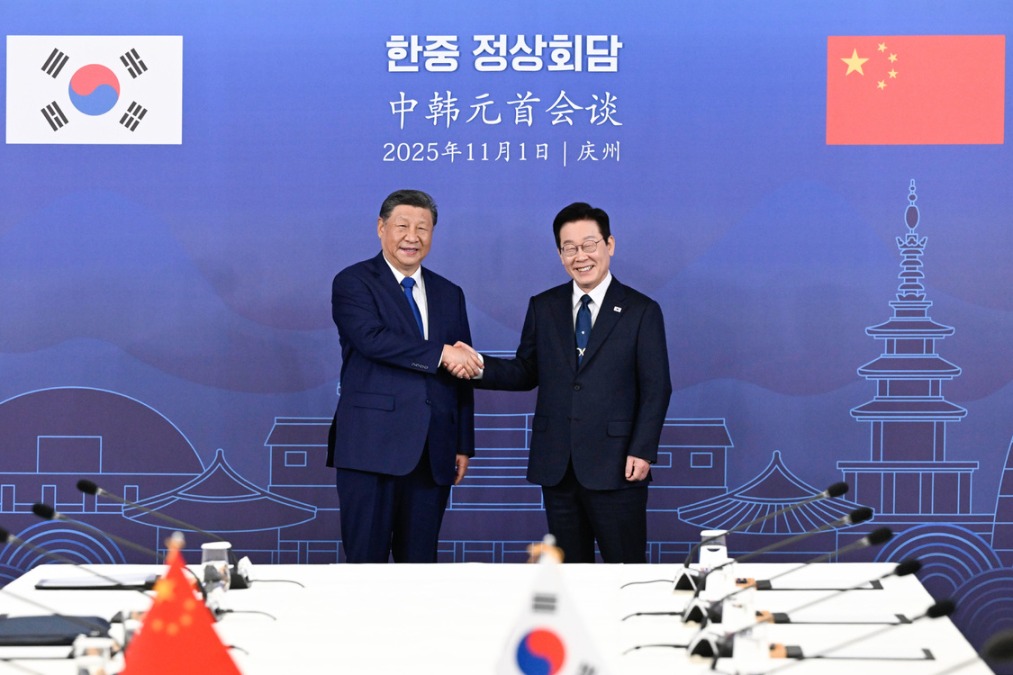Role of Global South in promoting trade stability
By YANG RAN | CHINA DAILY | Updated: 2024-11-23 08:55

Cooperation and mutual learning among Global South countries can significantly drive their momentum of modernization and contribute to a more equitable global order, experts said, highlighting China's modernization as offering valuable lessons.
They made the remarks during a panel discussion at the Fifth Think Tank Forum on National Governance in Developing Countries held in Beijing on Friday.
Zhou Taidong, vice-president of the Center for International Knowledge on Development, noted that cooperation within the Global South is increasingly recognized for its unique advantages compared to the North-South partnerships.
"Global South cooperation emphasizes principles of solidarity, noninterference in internal affairs and mutual respect, prioritizing development," said Zhou, who is also an associate research fellow of the Development Research Center of the State Council.
"Unlike altruistic aid, South-South cooperation focuses on reciprocal benefits, fostering development capabilities and enhancing sustainability. Policies and technical solutions developed by countries from the Global South are often more practical, applicable and cost-effective."
China has played a pivotal role in promoting and enhancing cooperation among Global South countries by introducing new guiding concepts, building innovative development mechanisms, and sharing its development expertise, Zhou added.
Michael Dunford, emeritus professor at University of Sussex, said that Chinese concepts of harmony and symbiosis is widely shared in the Global South and East.
According to Dunford, China's promotion of the ideas like building a community with a shared future for mankind points to the need for a new path of high quality and people-centered world development and for a corresponding transformation of international governance and governance capacity. That is "a development and governance path which moves humankind forward while addressing the problems associated with hitherto modernization and development paths," he said.
Huang Yiping, dean of the Institute of South-South Cooperation and Development at Peking University, said that the most valuable experience China has gained in its over 40 years of reform and opening up is the importance of pragmatism, which may be borrowed by Global South countries.
Endalkachew Sime, former state minister of planning and development of Ethiopia, echoed Huang's sentiments, noting that China's remarkable development over the past decades provides a compelling case to zoom in to tap lessons.
"The Global South nations have to explore the indigenous knowledge on governance among ourselves and learn from each other," he said.
Chen Bo, president of the China Institute of International Studies, called on Global South nations to unite in creating an environment conducive to development.
"In recent years, global development has faced severe setbacks, with development issues being politicized and marginalized," Chen said. "The Global South should get united to bring development back to the forefront of the international agenda, revitalize global development partnerships and create new momentum for global development."
Chen emphasized that modernization is an inalienable right for all countries. The Global South, as a crucial force in improving the global governance system, should collectively uphold true multilateralism and advocate for an equal, orderly multipolar world and inclusive economic globalization, she urged.
Huang, from the Peking University, also underscored the importance of maintaining and enhancing an open and free global trade system.
"If the global free trade system is harmed, it is likely to affect new development opportunities for Global South countries," he warned.
"Maintaining and enhancing an open and free international trade system is not only in the common interest of the Global South but also our collective responsibility. We should take more initiative and use various platforms and mechanisms to support a multilateral, open and free international economic system."
Tamas Hajba, head of the Beijing Office of the Organisation for Economic Cooperation and Development, said that the modernization of developing countries in the Global South is not merely an agenda item but a necessity for achieving global stability, equity and sustainability.
"By addressing economic inequalities, bridging the financing gap, fostering inclusive societies, and building climate resilience, we can transform the Global South countries into drivers of global progress," he said.
























